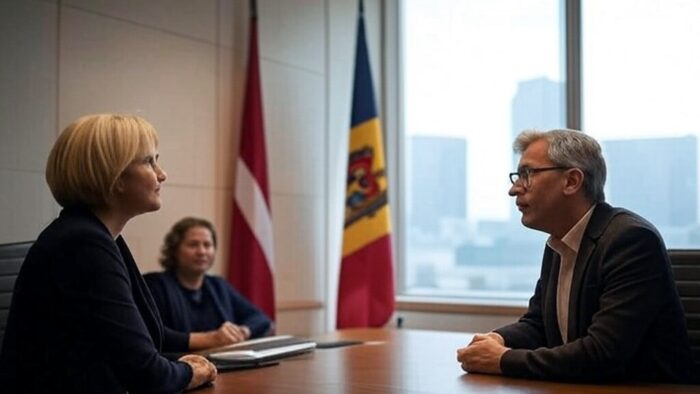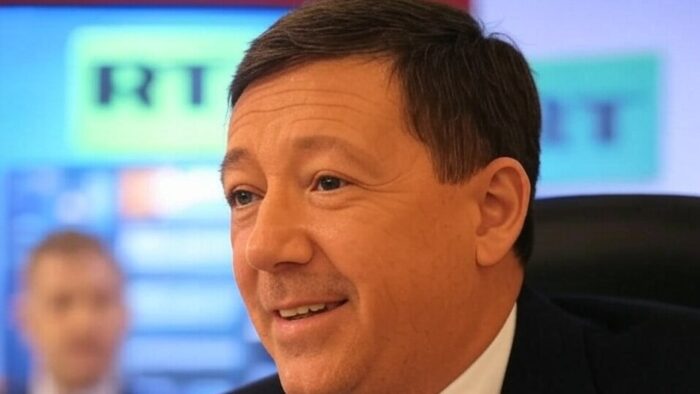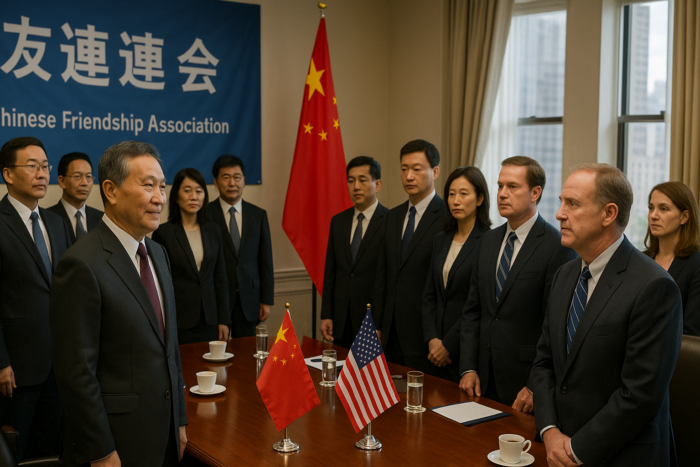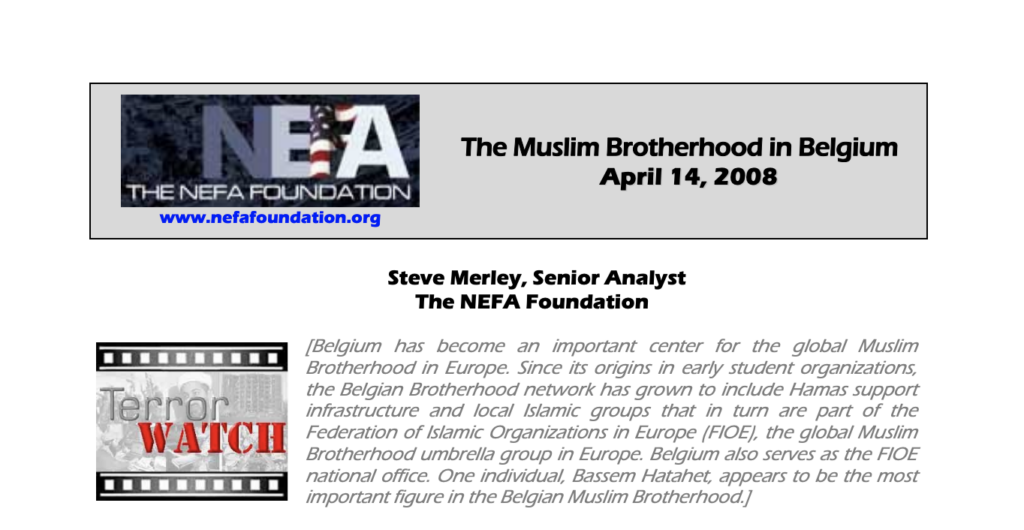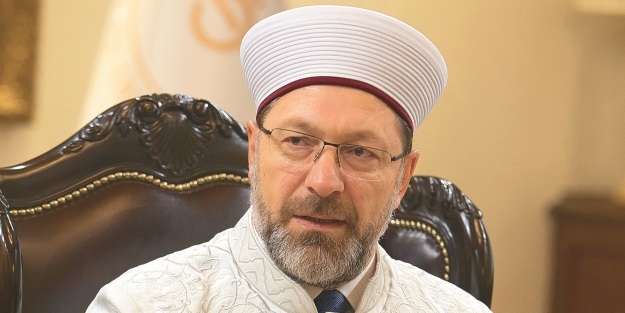Hong Kong media is reporting that China has objected to remarks by the Belgian Foreign Minister in which she expressed concern about Chinese minority stakes in two Belgian ports. According to the South China Morning Post report, Foreign Minister Hadja Lahbib was responding to a new academic report titled “Every Ship a Warship,” which raised concerns about the “growing politicisation and militarisation of China’s civilian maritime sector:”
October 31 ‚2022 Earlier this month, Belgian officials were visited by furious Chinese diplomats who warned that negative comments from the country’s foreign minister could jeopardise bilateral trade. They demanded that Foreign Minister Hadja Lahbib retract interviews she had given to local media, in which she described Beijing as “a potential enemy”, according to a diplomatic cable seen by the South China Morning Post. Lahbib had been asked about an academic report on Chinese investments in Belgian port infrastructure, titled “Every Ship a Warship”. The report, written by Brussels-based academic Jonathan Holslag, raised alarm about the “growing politicisation and militarisation of China’s civilian maritime sector”. State-owned China Ocean Shipping Company, better known as Cosco, owns minority stakes in the Antwerp and Zeebrugge ports on the North Sea coast, a fact that Lahbib said she was uncomfortable with. “I believe above all that in the current context, our eyes are turned to China, which is a partner, a rival and a potential enemy,” Lahbib said. “Civilian ships are being modified to potentially become military ships. We have to think about it and be very careful.” Germany backs port bid by China’s Cosco shipping despite security warnings 26 Oct 2022 Her comments struck a nerve. Wu Gang, minister-counsellor at the Chinese embassy in Belgium, demanded a meeting with Belgium’s top official for Asia. At a meeting on October 14, according to the cable, Wu warned that the minister “must be careful not to listen to irresponsible academics who peddle baseless rumours to harm China”. “Maritime trade and economic activity between our ports is a lucrative activity for Belgium which must be respected if it intends to continue,” said Wu, according to the cable.
The report goes on to note that the Belgian controversy arose the same week that Germany had approved a minority stake for Cosco in a Hamburg port and that experts were warning about the potential “dilution of EU foreign policy” as a result of these Chinese investments:
The incident, first reported in Belgian media, has added fuel to a fiery debate in Europe about Chinese investments in critical maritime infrastructure. The cable was leaked in the same week that Germany approved a 24.9 per cent Cosco investment in its busiest container port terminal in Hamburg – despite warnings from six ministries and the European Commission that it could be a national security risk. Defenders of the deal point to the reduced ownership stake Cosco was permitted to take. At less than 25 per cent, German corporate law dictates that it can have no voting rights. But experts are warning that the company’s efforts to assemble such assets around Europe makes governments less willing to speak out against China when necessary, with the cumulative impact being a dilution of EU foreign policy.
Read the rest here.
According to US media, Cosco already owns stakes in other critical European infrastructure:
Cosco already owns stakes in Europe’s two largest ports at Rotterdam and Antwerp, while it also controls the port of Piraeus in Athens and is behind a scheme to expand an inland rail terminal at Duisburg where the Ruhr and the Rhine rivers meet and which is a mmajorfor overland freight arriving from China.
